While Facebook’s Internet.org is busy finding ways to beam high-speed satellite Internet to disconnected parts of the world, other Facebook initiatives are trying to capitalize on the site’s existing users in developing countries where mobile networks are already available, if slow.
The latest of the company’s efforts in this department is the Facebook Creative Accelerator, a new program helping brands design mobile ads that work technologically and culturally in high-growth countries outside the West. In recent months, ads for Nestlé, Durex and Coca-Cola have been launched in India, Indonesia and Kenya, respectively. Turkey and South Africa are next on the list.
“[Creative Accelerator is about] how we can make stories, connect brands with people—but also their technical realities of their situation, with varieties of phones and bandwidths,” says Mark D’Arcy, chief creative officer of Facebook Creative Shop, Facebook’s group that works with agencies and brands, and runs Creative Accelerator.
Key to the Creative Accelerator program is a technique that can tell whether a Facebook user is on a fast or slow mobile connection, then serve them a speed-appropriate ad. A Facebook user with a 3G connection, for instance, might get a photo ad, while another user in the same country on 2G might get a text ad for the same product. Advertisers have used this speed-sniffing technique for years, but its application to developing markets — where more people are using mobile devices — is new.
“It’s the first time that I’ve heard this kind of targeting being used in developing markets,” says Karsten Weide, an analyst at IDC, of Facebook’s program. “It’s a great idea for the advertiser, and it’s a great idea for Facebook, too.”
In India, for example, Facebook worked with Nestlé to launch an ad for Nestlé Everyday, with a video ad for faster connections and a photo ad for slower connections. Here’s what it looks like:
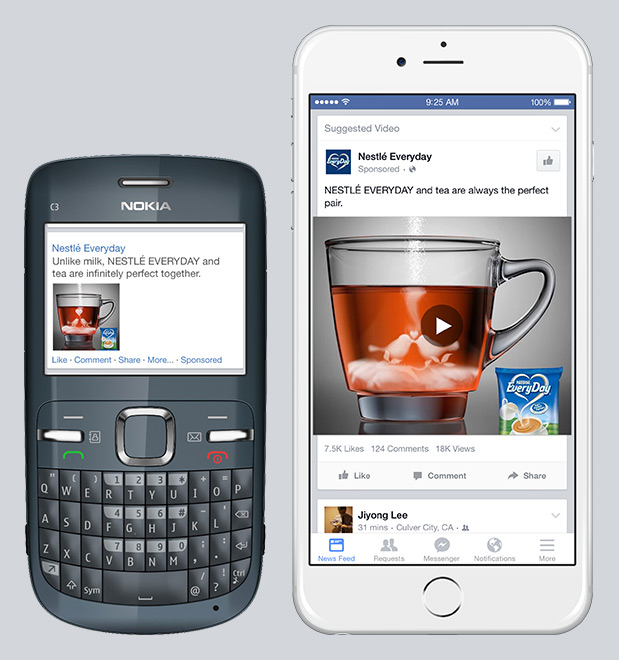
As another example, in Indonesia Facebook worked with Durex to design ads whose images were compressed in manners easily downloadable by the user’s mobile bandwidth speeds. They also differentiated the ads by male and female users:
Facebook’s efforts to help brands advertise on mobile devices speaks to those gadgets’ dramatic global proliferation. More than half a billion Facebook users now visit the social network only via their mobile devices, the company said in January. Meanwhile, people in developing countries are increasingly reliant on mobile devices as their gateway to the Internet, as cheap phones and subsidized plans spread. For example, here’s a look at how the mobile markets are growing in Indonesia and India, two countries where Facebook’s Creative Accelerator is doing business:
While Internet.org has been criticized by some as a business effort disguised as altruism (Facebook would, of course, benefit from having more Facebook users in the world), the company readily acknowledges the Creative Accelerator project is a commercial undertaking. After all, mobile ads are growing dramatically in financial importance for Facebook — they made up almost 70% of Facebook’s $3.6 billion ad revenue in the fourth quarter. Facebook’s D’Arcy, however, says that if people in the developing world are going to see mobile ads — and see ads they will — shouldn’t those ads at least be worthwhile?
“We have a belief that advertising should be valuable for the people that make it, but also the people that receive it,” says D’Arcy. “It’s not the case that the sophistication of people is reflected in their technical limitations.”
Read next: Mark Zuckerberg Has Advice for Young People Who Want to Change the World
This Is What Your Facebook Profile Looked Like Over the Last 11 Years
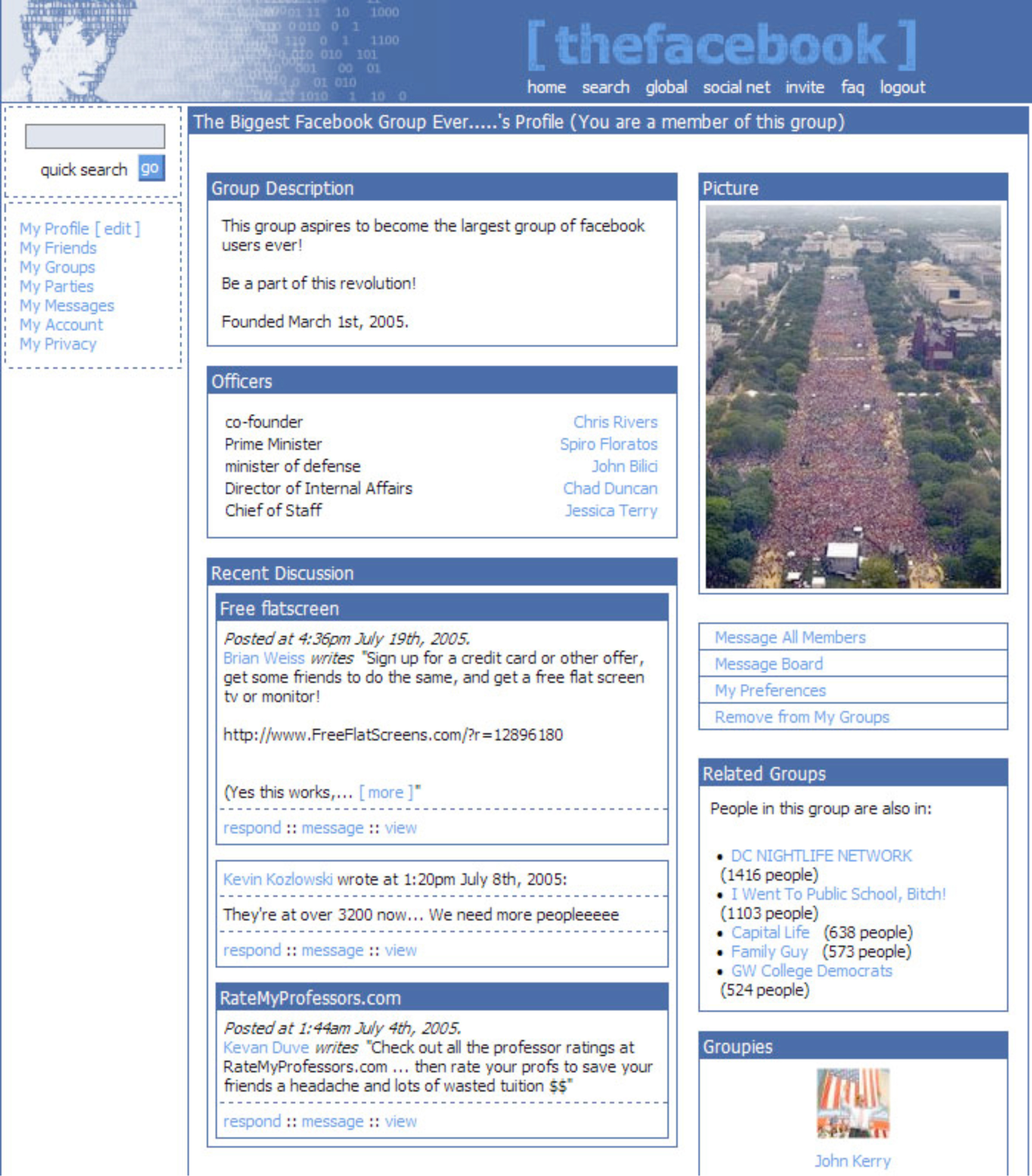
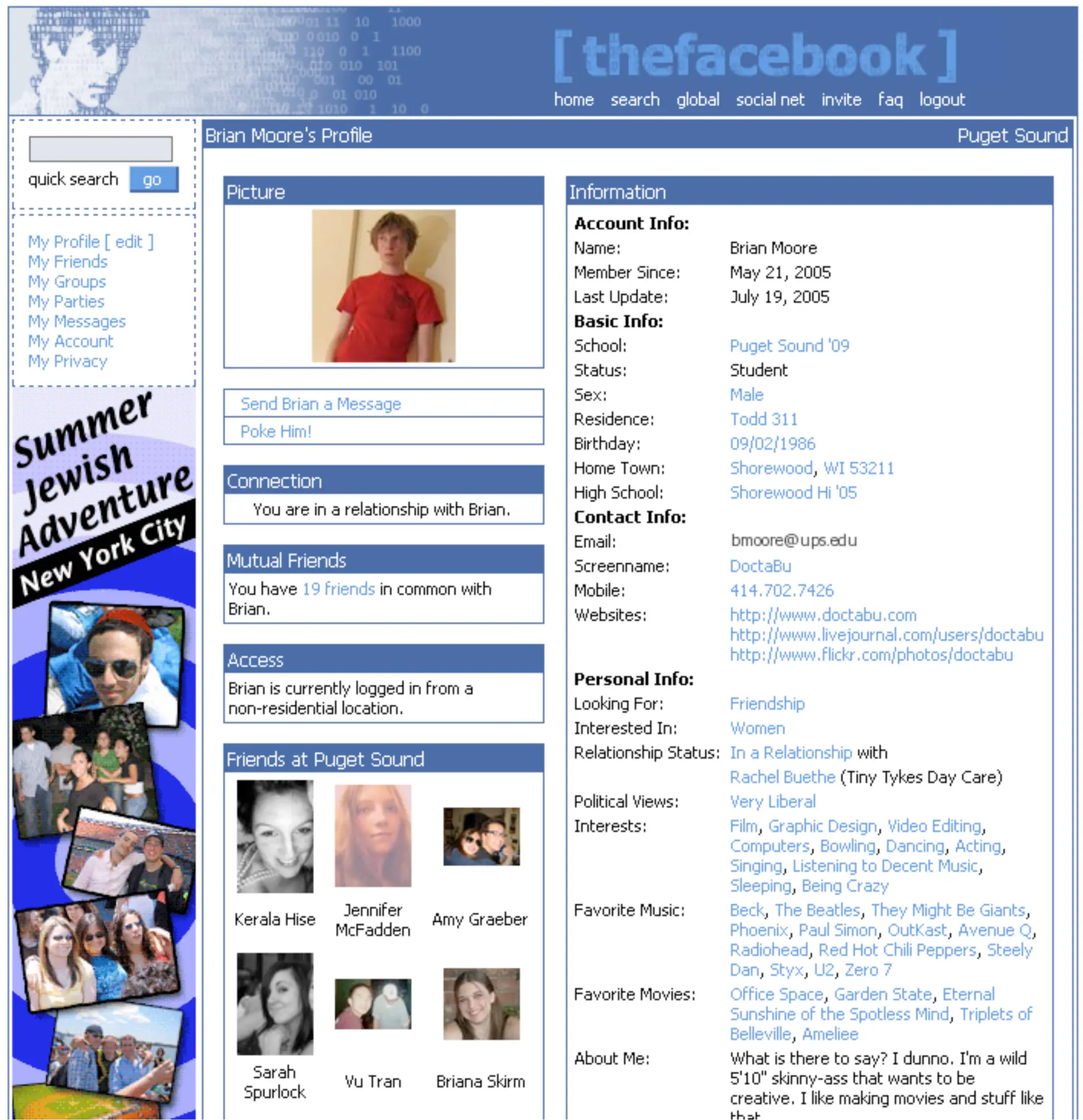
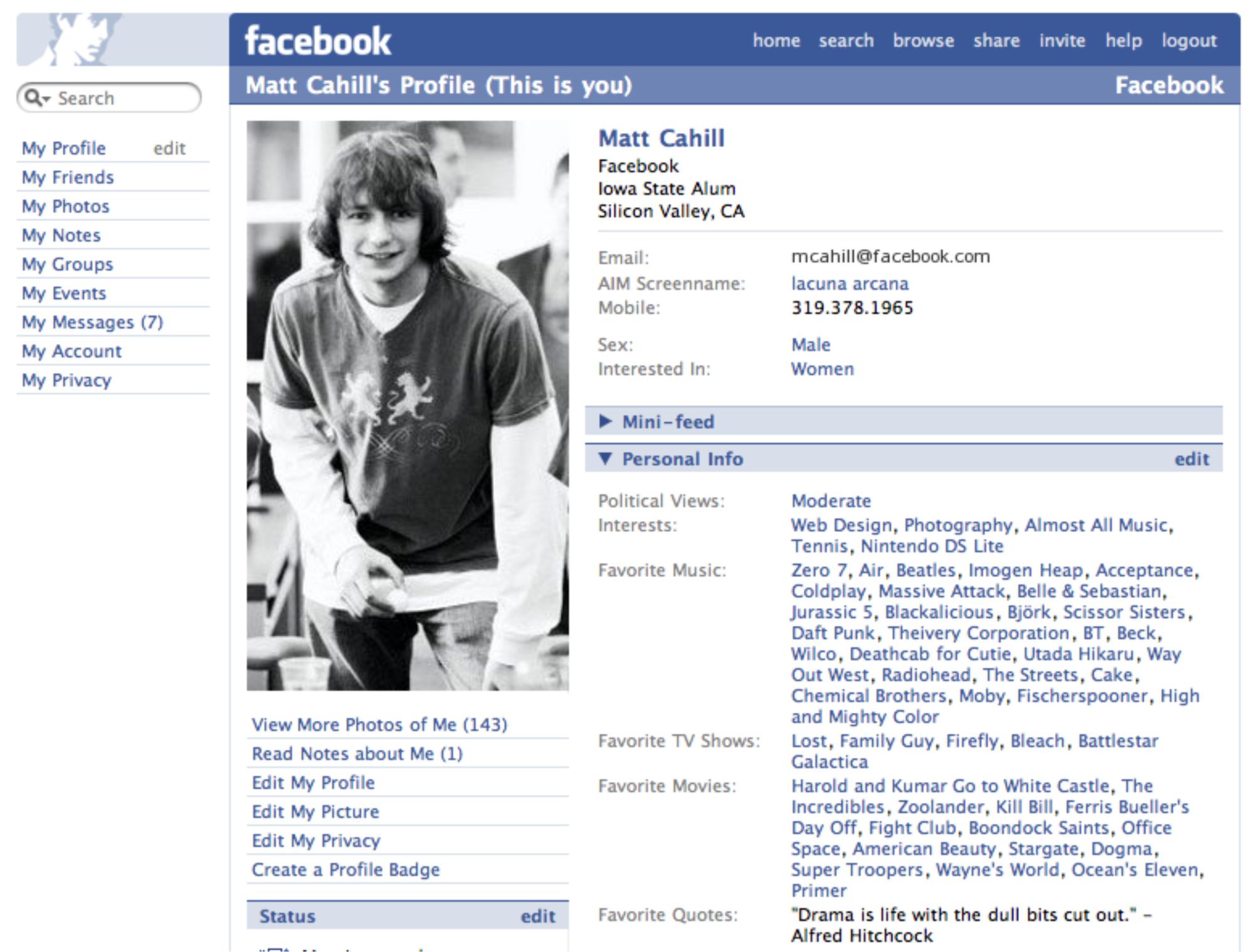
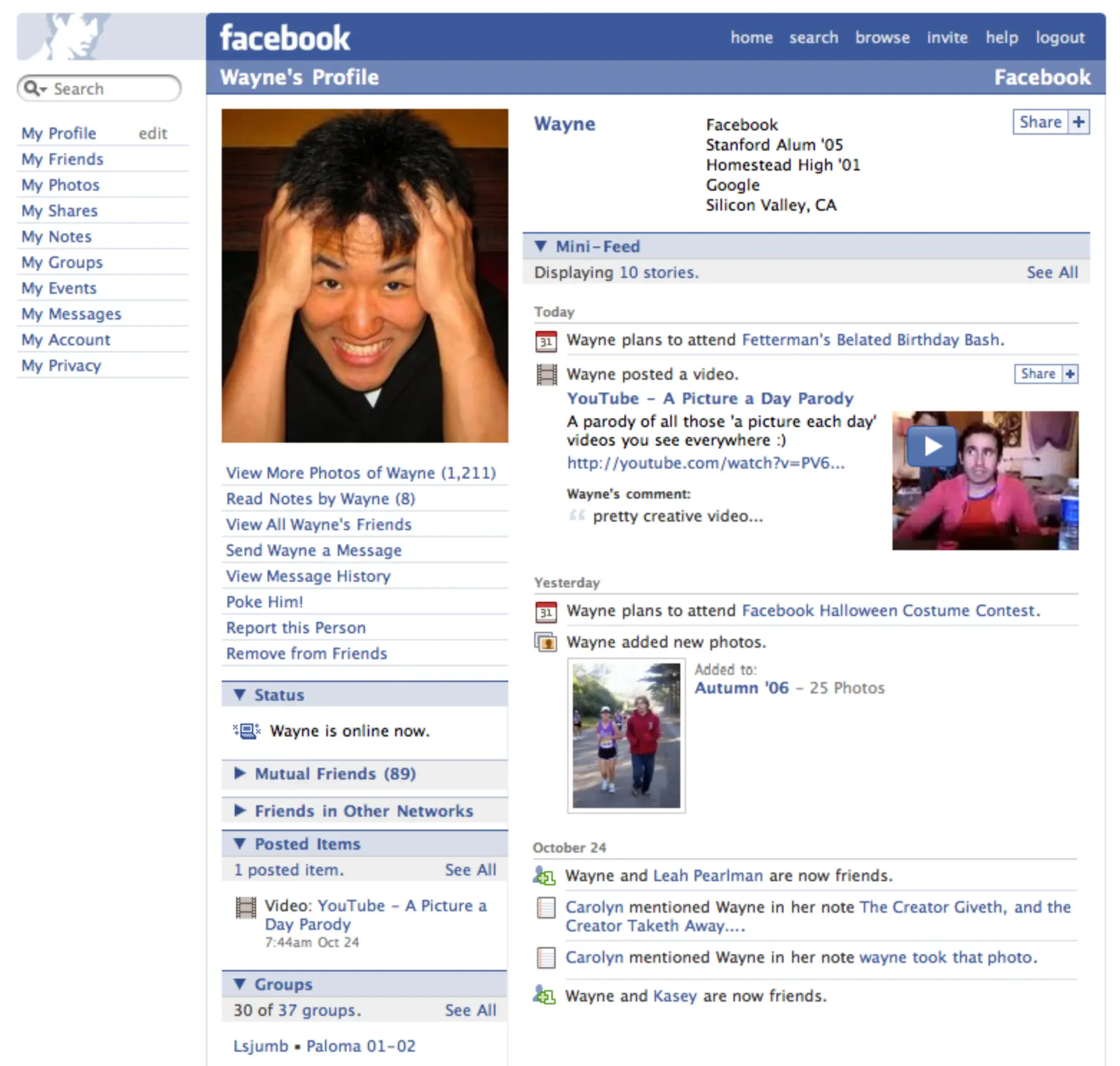
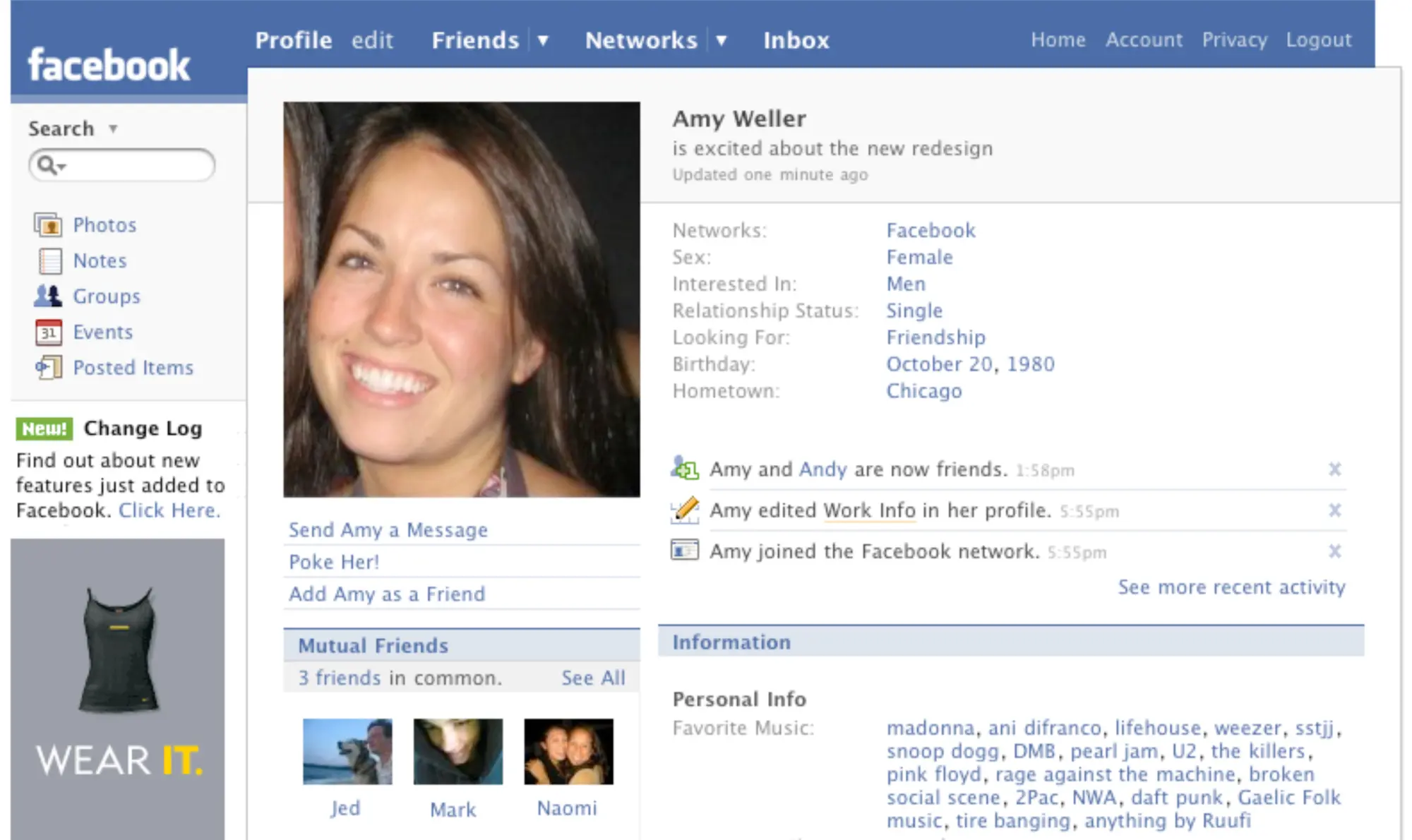
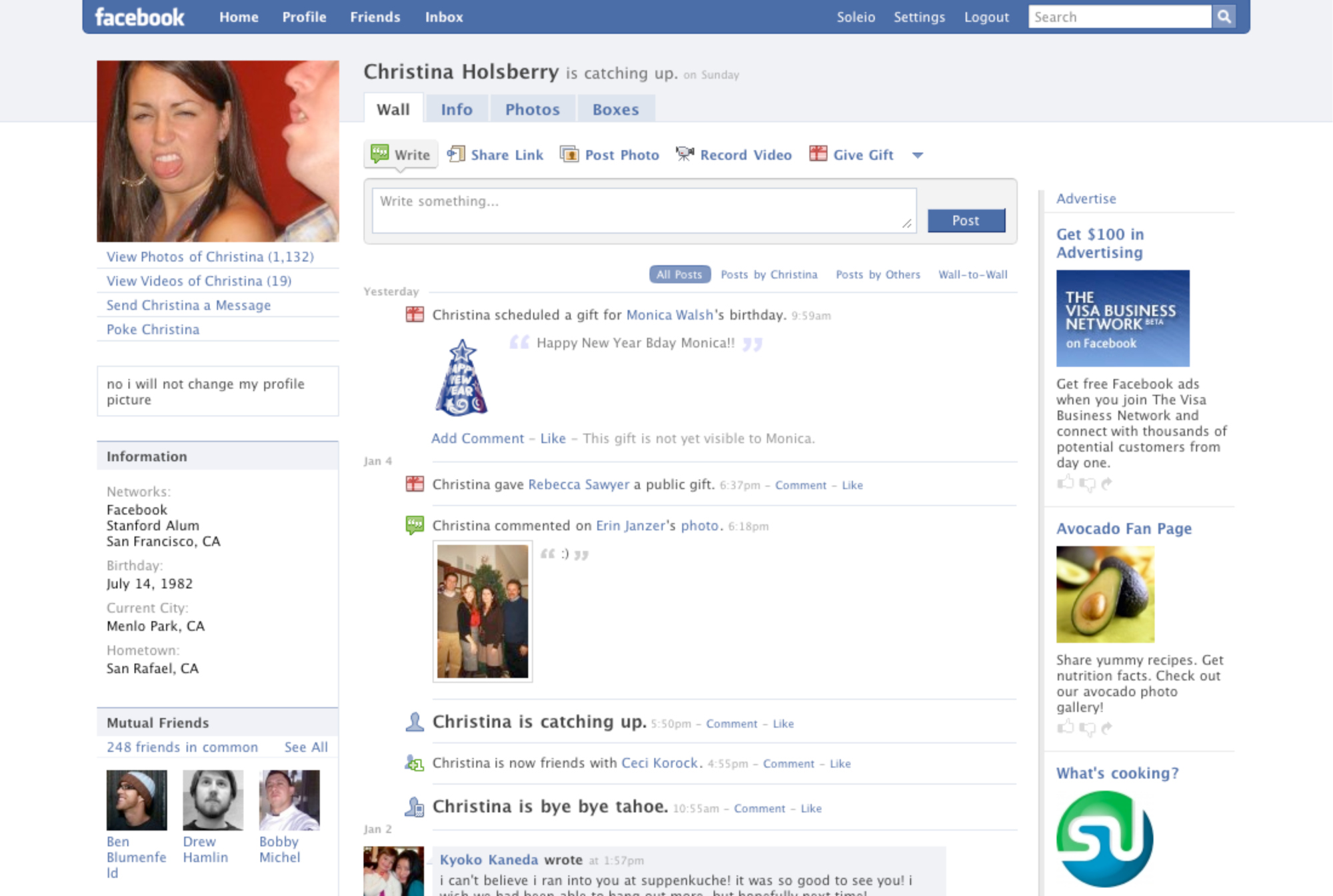
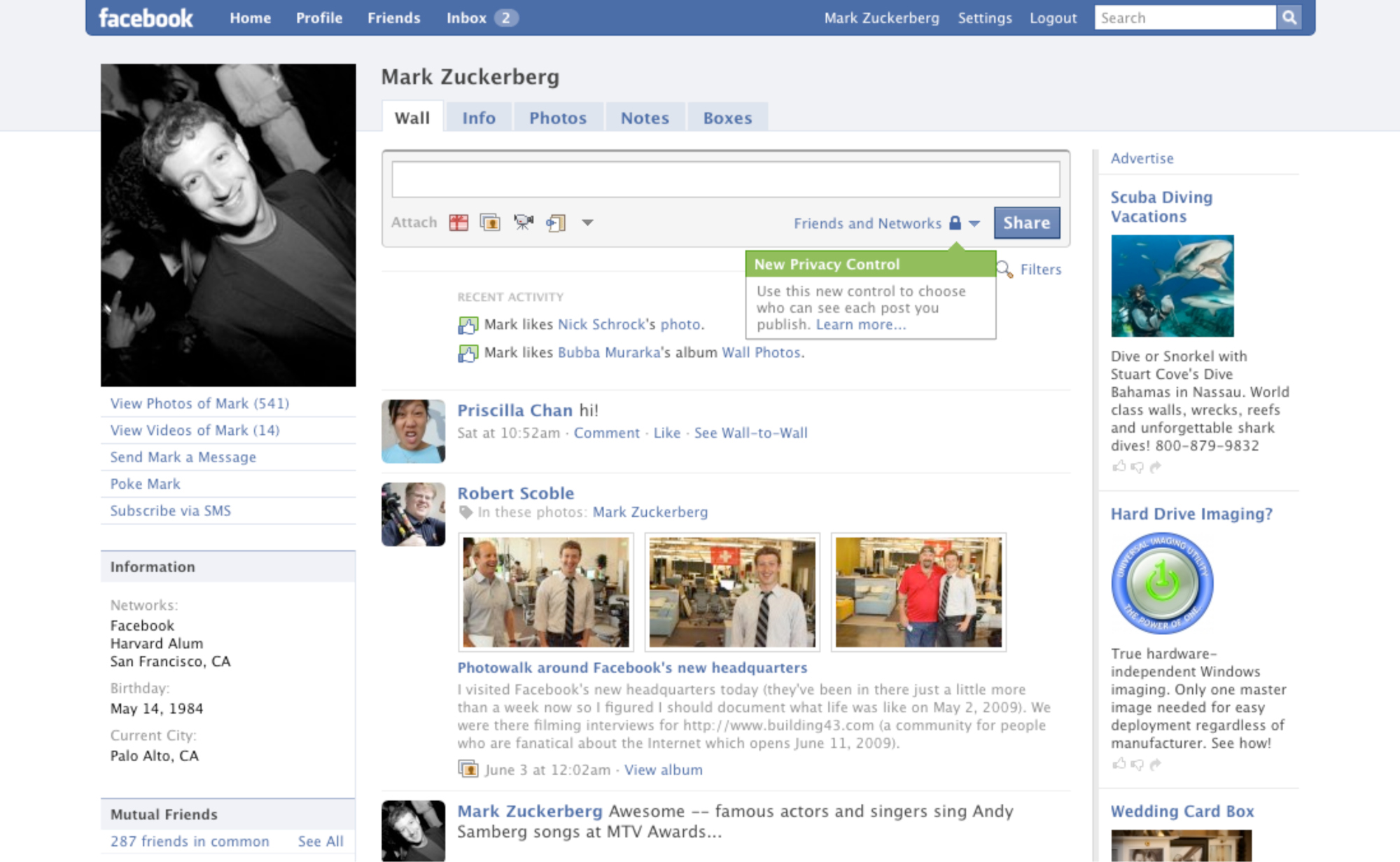
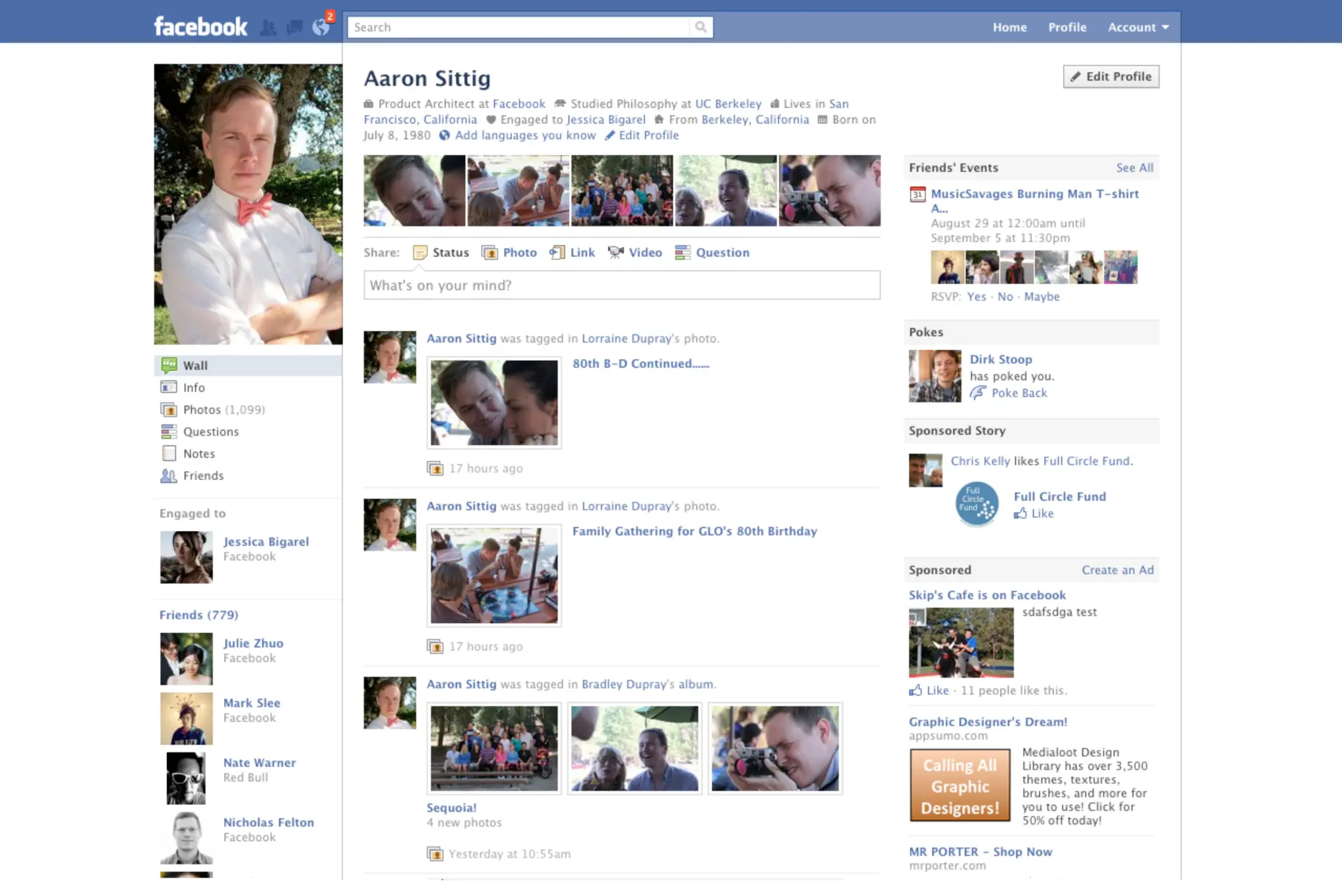
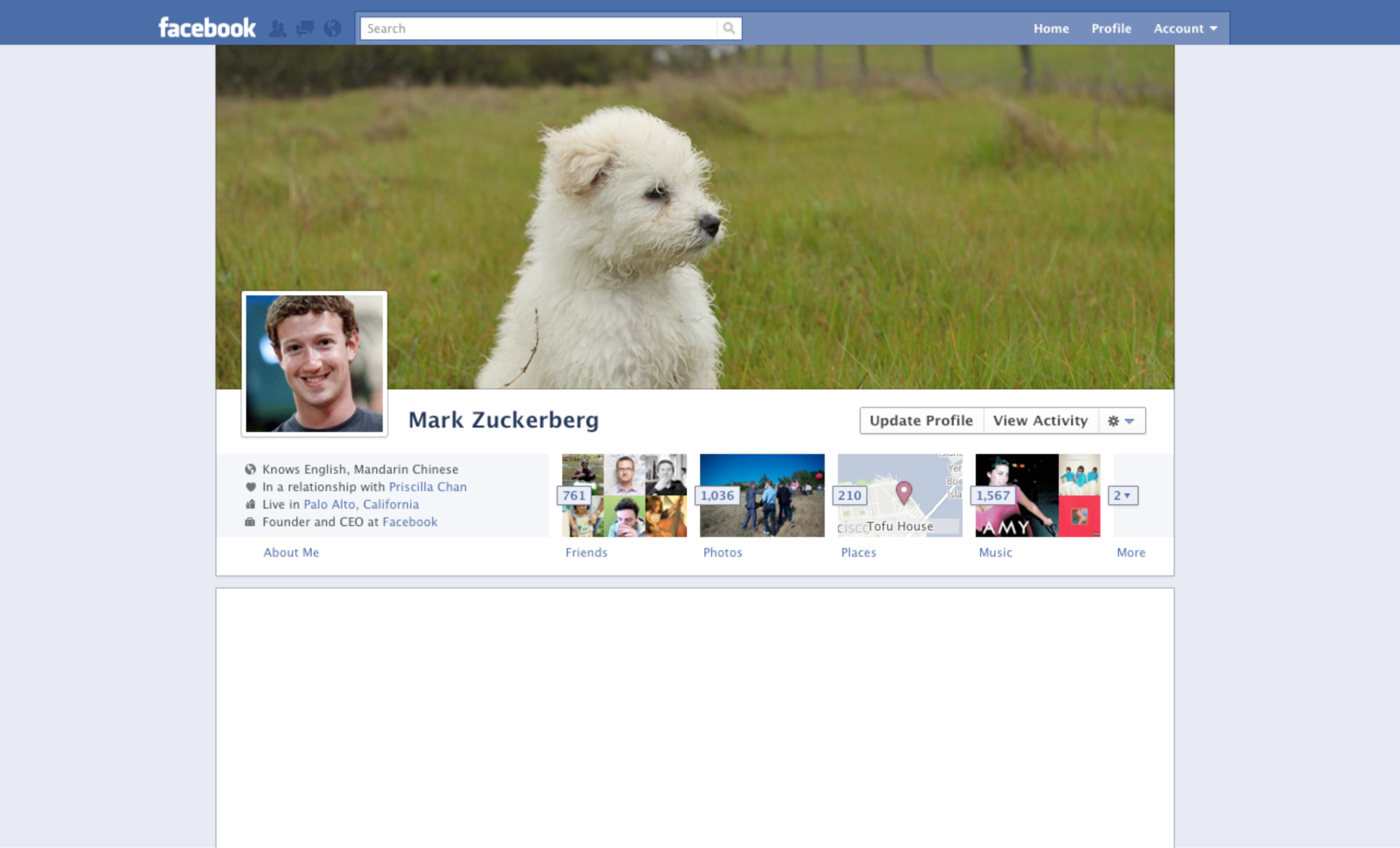
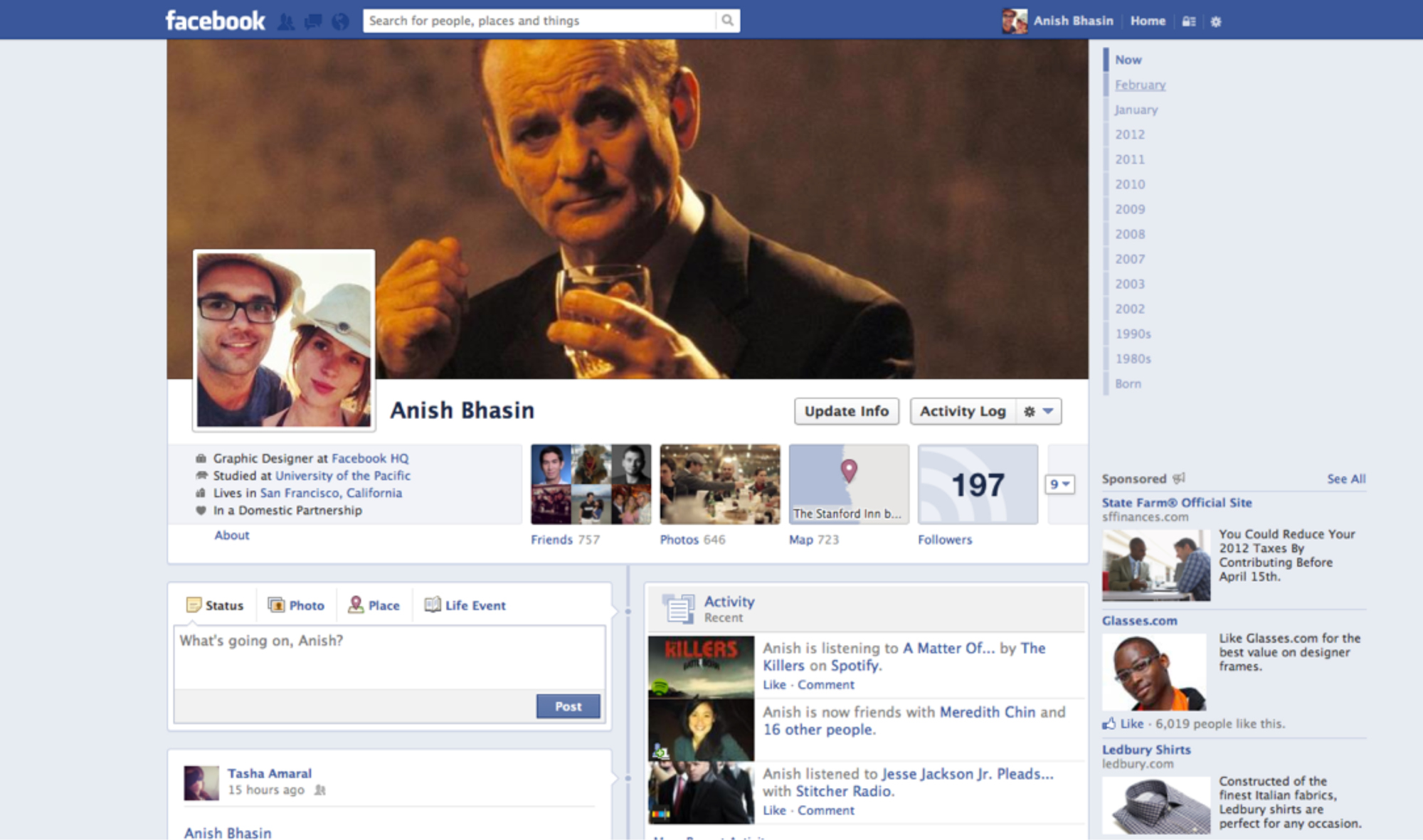
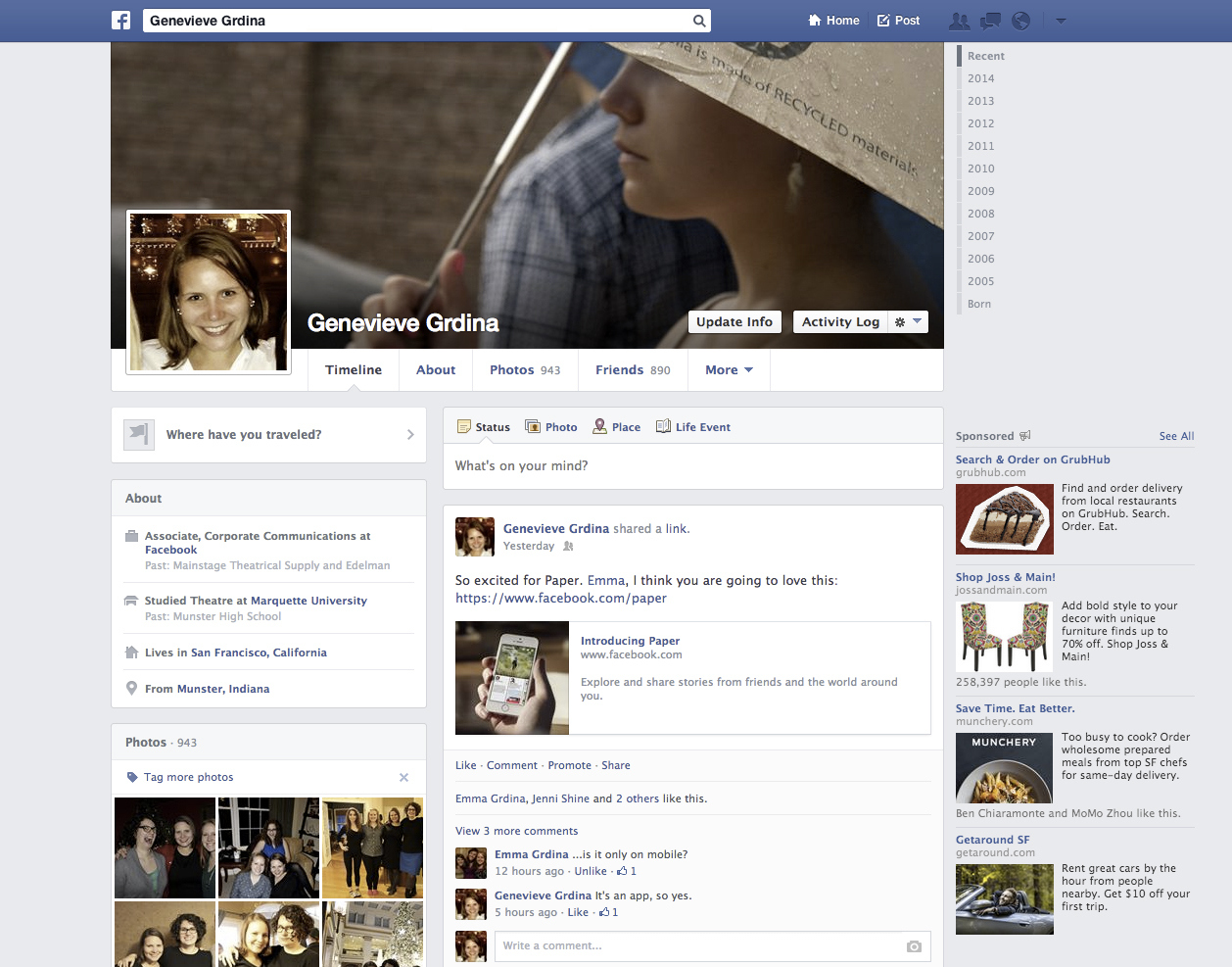
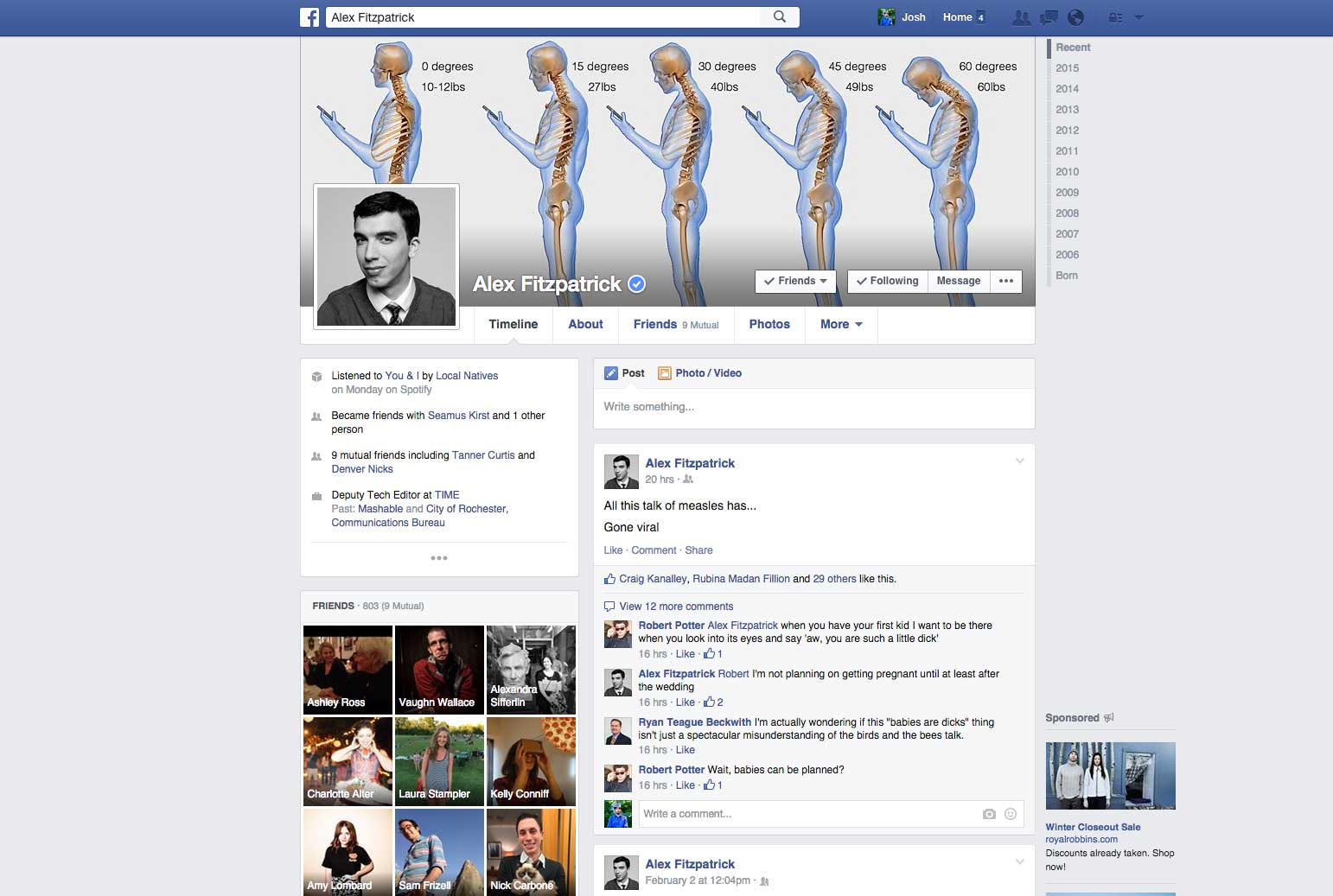
More Must-Reads from TIME
- Cybersecurity Experts Are Sounding the Alarm on DOGE
- Meet the 2025 Women of the Year
- The Harsh Truth About Disability Inclusion
- Why Do More Young Adults Have Cancer?
- Colman Domingo Leads With Radical Love
- How to Get Better at Doing Things Alone
- Michelle Zauner Stares Down the Darkness
Contact us at letters@time.com